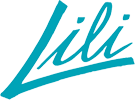“Those who differ from me, far from injuring me, enrich me“.
This famous quote by Antoine de Saint-Exupéry should resonate especially in the context of modern business and enterprise. Differences as a source of wealth. And yet. In a recent article in L’Express, Marine Balensard* tells us: “Although they excel in innovation, solving complex problems, or leadership, dyslexics still hide themselves in France. Conversely, in the UK, Sir Richard Branson, the multimillionaire founder of the Virgin empire, proudly proclaims that he succeeded because of his dyslexia. In France, this issue is overlooked.”
Isn’t it time to change our perspective, to take an interest in new research on dyslexia that demonstrates the key role they must play in societal developments (climate challenges, AI, etc.)?
Indeed, dyslexia, far from being a handicap, can enrich companies by bringing a diversity of unique skills that can energize them and thus foster innovation and success.
Limitless Creativity
Dyslexics have an innate ability to think unconventionally. Their creative minds see problems from a different angle, allowing them to propose innovative solutions where others see dead ends. This limitless creativity is a real asset for companies looking for new ideas and innovative strategies.
Holistic Thinking
Instead of focusing solely on details, dyslexics can see the bigger picture. This enables them to understand complex systems and find comprehensive solutions. This ability for holistic thinking is particularly valuable in a professional environment where strategic vision is essential.
Adaptability to Change
Dyslexics often had to develop alternative learning strategies to succeed in school. This makes them particularly resilient to change. Their ability to quickly adapt to new situations and find effective ways to overcome obstacles is a major advantage in a constantly evolving professional world.
Analytical Thinking
Although dyslexia is often associated with difficulties in reading and writing, many dyslexics develop exceptional skills in other areas, including analytical thinking. Their ability to see patterns and make connections between disparate pieces of information is a valuable asset in fields such as data analysis and solving complex problems.
Persuasive Communication
Finally, dyslexics are often persuasive communicators. Their ability to simplify complex concepts and tell compelling stories allows them to convince and influence others with ease. This skill is particularly useful in roles where effective communication is essential, such as marketing, sales, and leadership.
By recognizing the superpowers of dyslexic employees in the workplace, employers can leverage their diverse talents to stimulate innovation, foster creative thinking, and strengthen organizational resilience. Transforming differences into strengths opens the way to an inclusive work environment where everyone is valued for what they bring to the table, contributing to the collective success of the company.
By embracing diversity, businesses can create more dynamic, creative, and resilient teams ready to tackle the challenges of the professional world. Today, in the modern business world, it is essential to raise awareness among every employee about this difference, which is a powerful asset!
*Marine Balensard, Director of Ariseal, a consulting and training firm, is co-author of the book “The Superpowers of Dyslexics in Business” with Quentin Bous, published by Eyrolles. This book calls for awareness of the presence of talents in teams, talents that are often underutilized but which are eager to flourish. It is also an invitation to act within companies and organizations, as part of CSR policy to value human resources, workplace well-being, and daily efficiency.








